Permits help us keep people safe
Plantation forests contain many hazards. Aside from being a legal requirement for certain activities, a permit helps us manage safety for you and your participants. We use the information on your permit application to assess the suitability of the proposed area for your activity and minimise risk from:
- harvesting operations, including logging truck haul routes
- prescribed burning
- pest management
- closed roads or bridges
- concurrent events or activities that may not be compatible with yours.
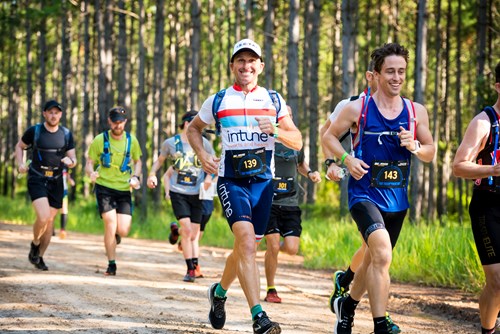 We manage land in state forests and on private property. Some activities in state forests that overlap with our plantation forests require a permit. We manage these permits for approved activities in accordance with the Queensland Government’s requirements.
We manage land in state forests and on private property. Some activities in state forests that overlap with our plantation forests require a permit. We manage these permits for approved activities in accordance with the Queensland Government’s requirements.
Queensland Parks and Wildlife Service (QPWS) manages all other permits required for national parks, forest reserves, and state forests that do not overlap with our plantation forests. They also manage joint permits for activities that take place in both state forest managed by HQP and state forest managed by QPWS. For more information about applying for a permit through QPWS, please visit the Queensland Government website.
We manage permit processes and fees on a similar basis to QPWS, although there are some additional conditions and limitations due to the working nature of our plantation forests.
We do not grant permits for activities on our private property as public access is not permitted.
If you know which permit you require, you can make your selection below. If you don’t know which permit you require, scroll down to the flow chart or call our office on 07 5438 6666 and we will be happy to help.
To assist you, we have also answered some of the most frequently asked questions about permits below.
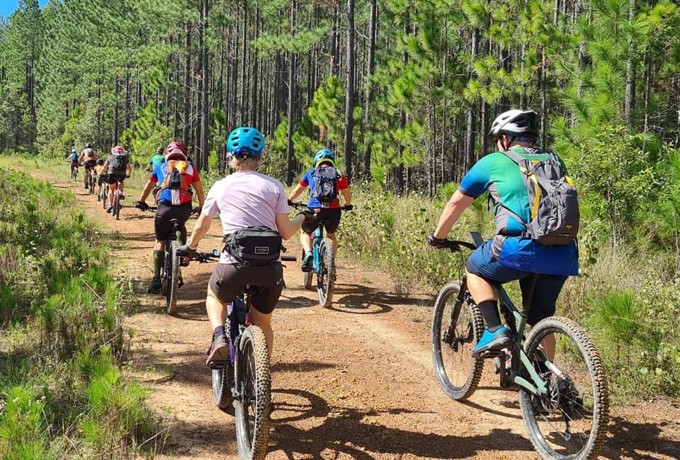
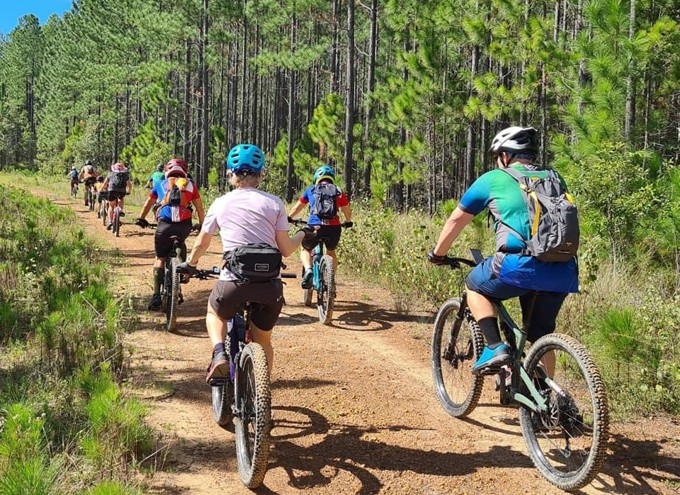
Organised events
An organised event permit is required for any group activities in our plantation forests where the size of the group is five or more for motorised activities (four wheel driving and motor bike riding) or 15 or more for non-motorised activities (such as hiking or cycling) even it is free to participate. If there is a participant fee, you may require a commercial activity permit instead.
For more information, please see the visitor management permit fact sheet, which also lists the fee schedule set by the Queensland Government. You can also download an application form here.


Commercial activity permit: filming and photography
A commercial activity permit: filming and photography is required for filming and photography in our plantation forests if it involves structures or more than 10 people even if you will not receive any financial benefit.
Structures include a vehicle, shelter, tower, platform, generator or an uncrewed aerial vehicle over two kilograms. Cameras, camera accessories or tripods used to support cameras are not structures.
For more information, please see the visitor management permit fact sheet, which also contains the fee schedule set by the Queensland Government. You can also download an application form here.
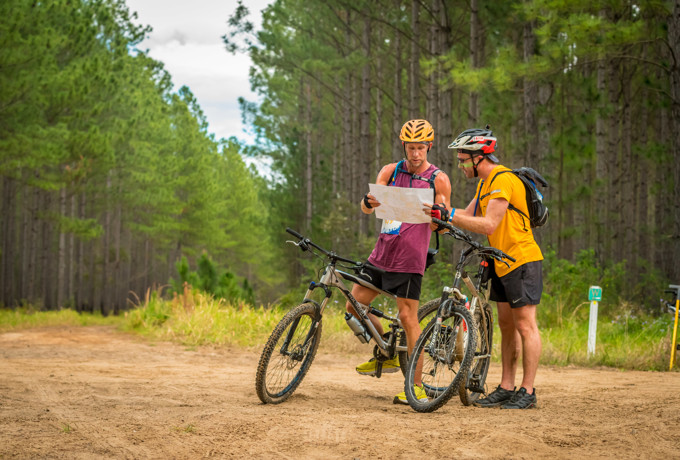
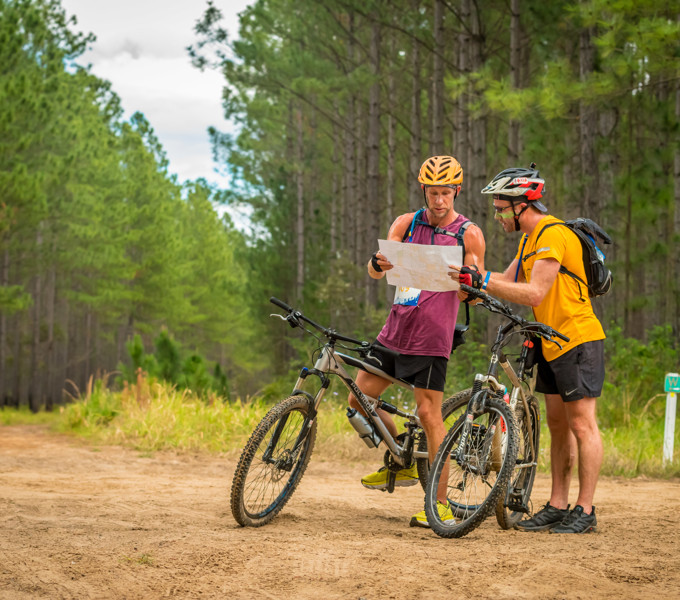
Commercial Activity Permit: Non-filming
A commercial activity permit: non-filming is required for any other activity where you or someone else benefits financially. Financial benefit includes payment, fees, donations, barter transactions, sponsorship, advertising, distribution rights, etc. Commercial activity permits are not transferable. They can be issued for periods from one day to three years.
Private groups and individuals involved in recreational or educational activities where there is no financial benefit do not require a commercial activity permit. Examples include bushwalking or nature study, group activities or research activities. However, an organised event permit may be required for these activities.
For more information, please see the visitor management permit fact sheet, which also contains the fee schedule set by the Queensland Government. You can also download an application form here.
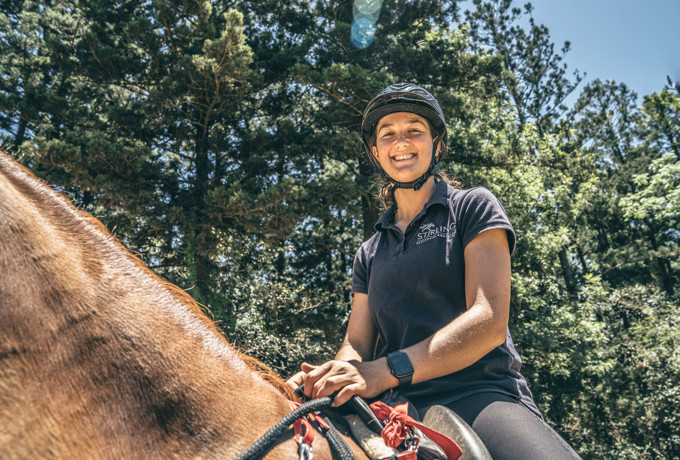
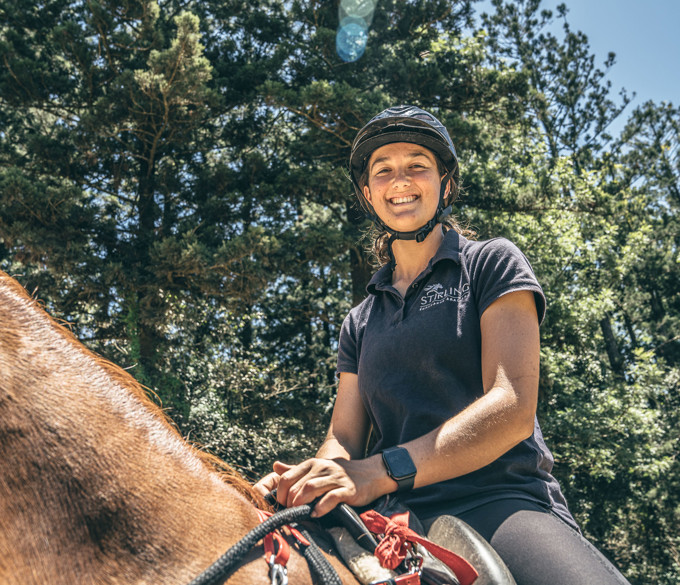
Permit to traverse for competitive events
Competitive motor vehicle and equestrian events may only be conducted in our plantation forests with a permit to traverse. Your horse riding or motor vehicle event falls into this permit category if there are rules and regulations, participants compete for prizes or points, or participant performance is judged on one or more criteria. This includes rallies, races, time trials and exhibition riding.
A permit to traverse is only required for competitive horse riding and motor sport events. All other competitive events are managed under an organised event or commercial activity permit.
For more information, please see the visitor management permit fact sheet, which also contains the fee schedule set by the Queensland Government. You can also download an application form here.
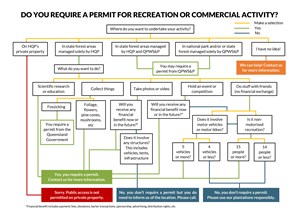
Not sure if you need a permit? Work through our handy permit flow chart, which you can also download. This permit fact sheet also contains more information about the different types of permits that are available. If you're still unsure, please call us on 07 5438 6666 and we'll be happy to help.
-
You need a permit when you plan to conduct an activity in plantation forests we manage and invite or arrange for people to participate where it’s reasonable to foresee that five or more motor vehicles (including motorcycles), 10 or more people are involved in photography or filming (including the photographer), or 15 or more walkers, horse riders, bicycle riders, guests, workers or spectators may be involved.
There are some variations to this dependent on permit type. The type of permit you require depends on the nature of your activity and whether:
- you are a business
- people have to pay to participate
- anyone benefits financially (from payments, fees, donations, sales, barter transactions, sponsorship, advertising promotion, distribution rights, social media income, etc)
- you plan to erect any infrastructure.
-
Please refer to the permit flow chart on this page to determine whether you require a permit. If you are still unsure, call us on 07 5438 6666. We'll be happy to help.
-
An organised event is any arranged activity where five or more motor vehicles (including motor bikes) or 15 or more walkers, horse riders, bicycle riders, volunteers, supporters, spectators or guests are likely to participate. This includes an event promoted on social media such as Facebook or Meetups or even just a social media post asking people to join you at a particular place and time.
An organised event that requires people to pay to participate or involves fundraising activities may require a commercial activity permit. If an organised event is a competitive motor vehicle or equestrian event, you may require a permit to traverse.
-
Yes, but you may require a commercial filming and photography permit. This also includes filming or photography taken in plantation forests during events, so it’s best to talk to us to avoid a potential Forestry Act prosecution. Even if you don't require a permit, you do need to talk to us about when and where you plan to film.
-
It depends on the activity you have planned but most permits are not very expensive. For more information about fees, view the fee schedule in the permit fact sheet or contact our office on 5438 6666.
-
You can download the relevant permit application from this page. Not sure what permit you need? Use our permit flowchart to find out.
Complete your application and post or email it to the address on the form, or by using the Contact Us form and selecting subject Permit application or enquiry then just attach your permit application. Once approved, your permit will be posted to you.
You can also contact us if you have any other questions or call our office on 07 5438 6666.
-
You are required to apply for a permit at least three weeks before your proposed activity to allow adequate time for it to be reviewed, assessed, approved and invoiced.
-
You are responsible for the behaviour, health and safety of the people you invited during your activity. Public liability insurance protects you if you are found to be legally responsible for personal injury to a third party or damage to someone’s property, including ours. A disclaimer on your web page, Facebook or Meetup page, or on an event invitation to waive your duty of care is not acceptable and if there is an incident, you may still be held accountable.
-
A permit can last for up to 12 months and include more than one activity (such as a calendar of events). However, this does not mean any event you organise in this period is a permitted event. You must still notify us at least two weeks before an upcoming event, and provide details of the event including your proposed route and number of participants. We may decline to allow the event dependent on weather forecasts, forest operations in the area or other events that have already been approved for the same area and period.
-
If you aren’t a commercial entity and it isn’t a competitive event, you may not need a permit if you have fewer than five motor vehicles (including motorcycles) or fewer than 15 people for non-motorised activities.
You also don’t need a permit from HQP if your proposed activity is restricted to gazetted roads only (a ‘dedicated road’ under the Land Act), however you may need a permit from the road owner, local government authority or other managing body.
If you are planning to operate in both national parks and our plantation forests, then you only need to apply for a permit from QPWS.
-
If you are found to be holding or participating in an organised event, commercial activity or competitive event in our plantation forests without the appropriate permit, this may impact future permit considerations for you or anyone else in your group or club. If it’s a serious breach, you may even be prosecuted under the Forestry Act and associated Regulations.
If you are considering participating in an event in a plantation forest we manage, you should check that the event organiser (or the person who invited you) has an appropriate and valid permit.
-
It is your responsibility to control the size and behaviour of your group. If your group size exceeds five or more motor vehicles (including motorcycles), 10 people involved in a filming or photo shoot, or 15 or more walkers, horse riders, bicycle riders, volunteers, supporters, spectators or guests you will require a permit, which is not possible to obtain on the day.
When people tag along, they become part of your group. To avoid the need for a permit, you shouldn’t publicly invite people to join you where you can’t control the response (e.g. on social media).
-
Yes, but it may change the type of permit you require. The Queensland Government determines that not-for-profit, community and educational organisations, clubs and associations conducting activities with established fees in order to raise funds (other than cost recovery or genuine donations) are considered commercial activities and require a commercial activity permit.
-
Even if they are popular with other users, we don’t issue permits for formed roads if the proposed activity might cause further damage or contribute to erosion of the road network and impact on water catchments. Our road network has been established to conduct day-to-day forest operations in a cost-effective way as well as to fight wildfires to protect the forest, neighbours and nearby communities.
Further, it is against the law to drive a motor vehicle or ride a motorbike on an unformed road (which includes the fire break network and powerline corridors) or illegally constructed track under the Forestry Act. People who do so risk prosecution.
-
In our plantation forests, a formed road is a graded road constructed for through traffic generally around a compartment with an obvious camber and clearly constructed drainage below the level of the road on both sides.
A road or track that appears on paper or electronic maps isn’t necessarily a formed road. A track that is exposed or well-used also isn’t a formed road if it doesn’t have intentionally constructed camber and drainage. Fire tracks and fire breaks are not formed roads.
Unformed roads are often those roads and tracks through compartments or between compartments and a public road. In the Beerburrum plantation, if you see a track between two trees with blue rings on them, this is a fire track not a formed road, and members of the public are not permitted to drive on it whether they have a permit or not. It is important these tracks remain accessible to fight wildfires and protect the forest, our neighbours and nearby communities.
Sometimes it can be hard to tell the difference between a formed road and an unformed road. The easiest way to be certain is to talk to us about your plans and we can advise what roads are suitable for your activity.
-
Give us a call on 07 5438 6666 and we will check for you.
-
Electricity distributors construct and maintain tracks to access their critical infrastructure for operation and maintenance. They do not consent to the use of these tracks for any public or recreational purposes.
-
In state forests these conditions are requirements of the Forestry Act. It is a condition of our plantation licence with the Queensland Government that we manage our plantation forests on state lands in accordance with all current legislation.
-
Forest Officers can fine or prosecute someone who breaches the Forestry Act. Forest Officers are usually trained QPWS Rangers and Queensland Police Officers appointed by the Chief Executive under the Forestry Act. Plantation Officers also have powers to prosecute certain offences under the Forestry Act committed in plantation forests on state land. Many of our employees are appointed Plantation Officers.
The Chief Executive is usually the Director General of the department that administers the Forestry Act, currently the Department of National Parks, Sport and Racing.
-
Visit the Queensland Government’s legislation page where you can view or download the Forestry Act 1959.
